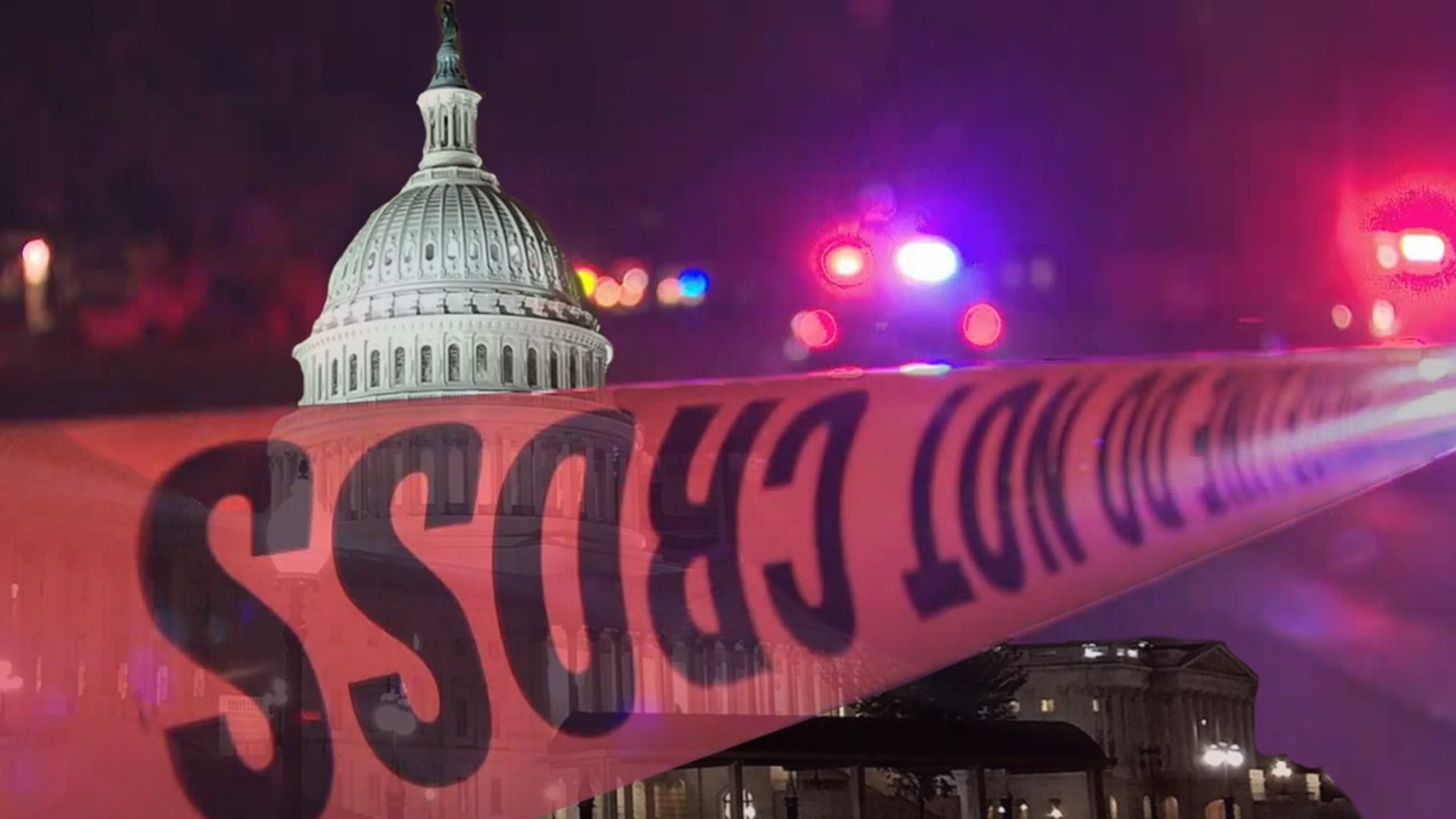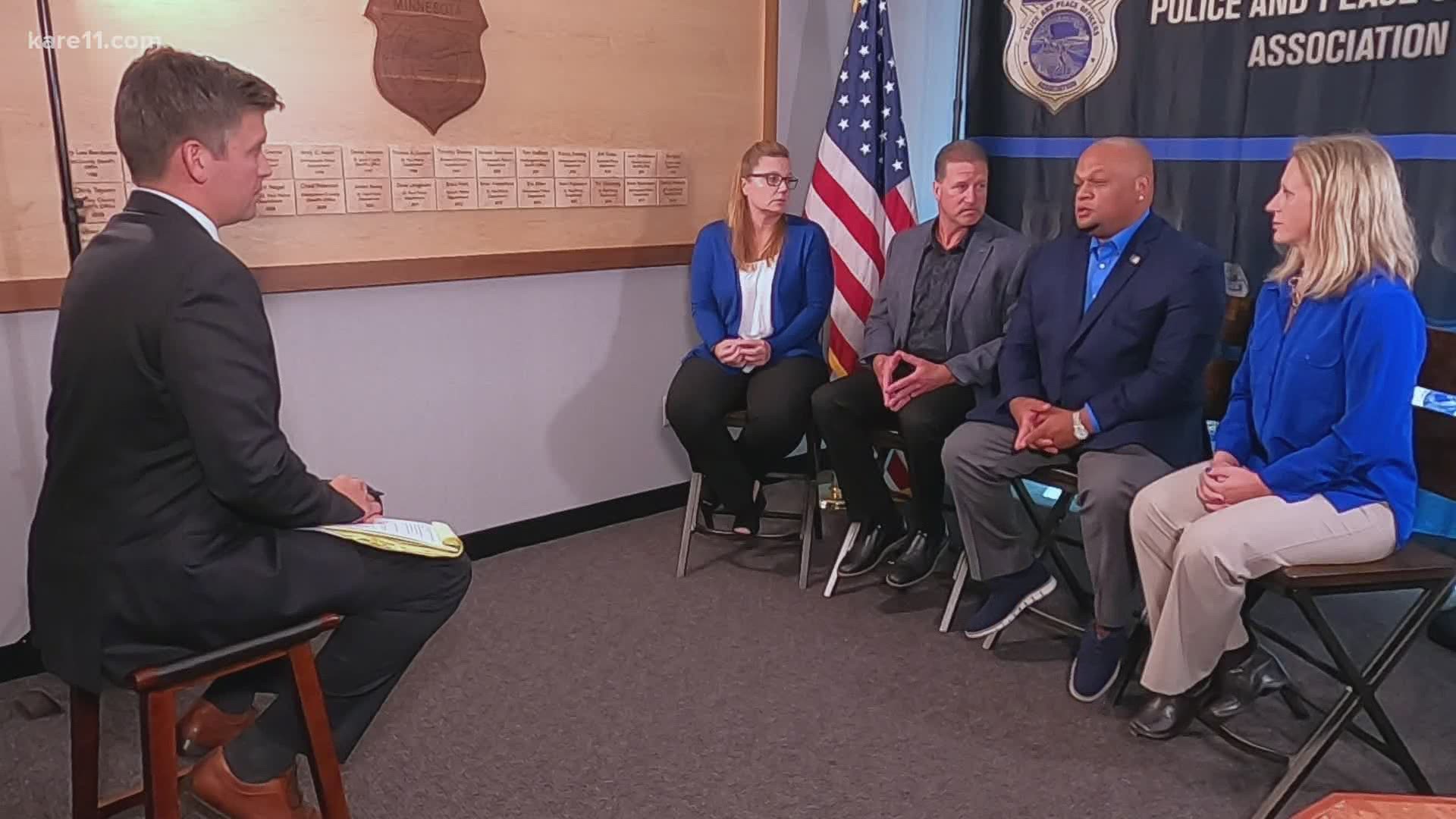MINNEAPOLIS — There are many parallels between the police reform debates happening in the US Capitol and those taking place here in Minnesota.
In both cases the House Democrats passed bills written by lawmakers who are Black, Indigenous or other people of color. And in both cases, most of those sweeping criminal justice measures face a dim future with Senate Republicans.
And in Washington, as in St. Paul, the odds of passing compromise versions of reform bills before the November elections are already beginning to fade. Supporters say they're not going to waste the momentum created by the outrage of George Floyd's death in police custody Memorial Day.
"We are not going to rest until we get the kind of transformative change we need in our country with regards to public safety, in regards to ending police brutality, in regards to the recognition that black lives do matter in this country," Rep. Ilhan Omar told KARE Friday.
The 5th District Democrat summoned the names of George Floyd, Philando Castile, Jamar Clark and others during a speech from the House Floor Thursday.
"I rise on behalf of black mothers, like myself, who stay up every single night so their sons can come home safe," Rep. Omar told her colleagues.
Sweeping reforms
The Congressional Black Caucus spearheaded the work on the George Floyd Justice in Policing Act of 2020. It contained a large number of reforms, including:
- Banning chokeholds and neck restraints for federal officers
- Banning no-knock search warrants for federal officers
- Conditioning law enforcement aid on communities adopting similar changes
- Reducing the "qualified immunity" officers have for using force
- A national registry for tracking officer discipline records
- Stepped up de-escalation training
- Requiring federal officers to use body cameras
Many of those changes are ripped from the headlines, so to speak, based on actual cases of fatal encounters with police that reverberated through the nation and sparked civil unrest.
"This is not a bill that is theoretical," Omar remarked. "This is a bill that actually addresses the heart of many of the cases which we have seen."
Only three Republican House members voted for the bill. All three of Minnesota's GOP members -- Reps. Pete Stauber, Jim Hagedorn and Tom Emmer -- voted against in. The House turned down a different package of reforms authored by Rep. Stauber, a former Duluth police officer.
"Sitting here, taking up a bill that is so partisan that it will go nowhere after its consideration here," Stauber asserted in his floor speech, after saying he's trying to help both the dedicated officers and the Black youth who fear police brutality.
"You are telling that black teenager and that officer that their concerns can wait until after Election Day!"
Stauber's bill would increase de-escalation training, pay for more body cams and increase access to officers' discipline records.
A Republican-led police reform effort faltered in the Senate Wednesday, when Democrats blocked it from reaching a floor vote. Dems said Sen. Tim Scott's bill fell so short of their goals that it would be better to have no bill at all.
It's clear the two bodies won't meet their original goal of getting a police reform package to President Trump's desk before Independence Day.
Minnesota reforms on pause
In Minnesota, Governor Tim Walz says he wants lawmakers to take another swing at the task, after House Democrats and Senate Republicans failed to agree on a set of bills that both chambers could accept during the Special Session early this month.
Democrats ran up against the self-imposed deadline set by Senate Republican leaders, but they also learned in the process that the upper chamber wasn't on board with many of the deeper changes contained in bills proposed by the House's POCI Caucus, or People of Color and Indigenous lawmakers.
Since then, Senate Republicans have pivoted to the issue of discovering why Gov. Tim Walz and Mayor Jacob Frey spent days before stopping rioting and looting in the aftermath of Floyd's death. A special Senate oversight committee will begin a series of hearings July 1 to delve into that issue and toppling of the Christopher Columbus statue at the Capitol.
Senate Republicans have painted Floyd's death as a failure by Minneapolis leadership to rein in officer misconduct, rather than something that requires changing the rules for officers statewide.


